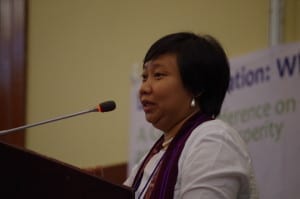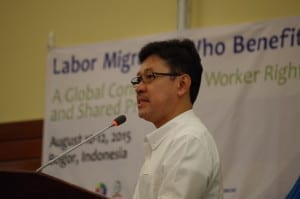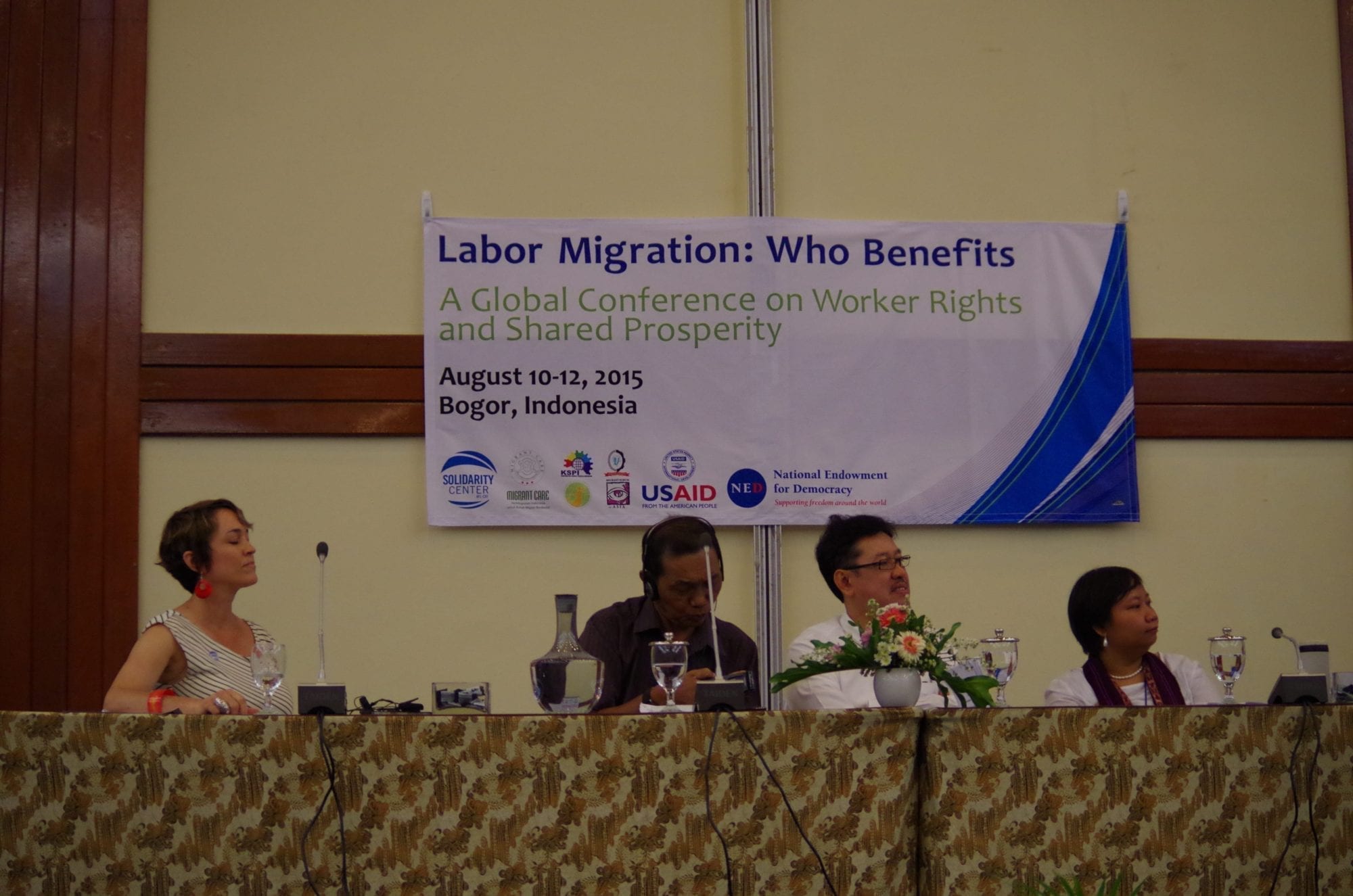Saying that “labor migration takes place in an economic context of massive and growing global economic inequality,” Shawna Bader-Blau, Solidarity Center executive director, helped set the stage for the first day of the August 10–12 event, Labor Migration: Who Benefits? A Solidarity Center Conference on Worker Rights & Shared Prosperity.
“Systems that regulate labor migration do so to the detriment of equitable development and shared prosperity and even contribute to rising inequality—rather than relieve it,” Bader-Blau said. (Read Bader-Blau’s full speech.)

Solidarity Center Executive Director Shawna Bader-Blau spoke at the opening session of Labor Migration: Who Benefits? Credit: Solidarity Center/Kate Conradt
Meeting in Bogor, Indonesia, more than 200 conference participants from 45 countries are discussing strategies on organizing migrant workers, reforming the labor recruitment process and ensuring migrant worker access to justice. Neha Misra, Solidarity Center senior specialist for migration and human trafficking, welcomed participants to the three-day conference.
Anis Hidayah, Migrant Care executive director, pointed to an often overlooked aspect driving labor migration—the feminization of poverty. “Migration is full of women issues,” says Hidayah, many involving gender-based violence, especially for domestic workers, the vast majority of whom are women. Based in Indonesia, Migrant Care is co-sponsoring the conference with the Solidarity Center.
In Indonesia, 53 percent or more of Indonesian migrant workers are women and most are domestic workers, who are “vulnerable to gender-based violence,” Hidayah said.

Most domestic workers are migrant workers, and many are “vulnerable to gender-based violence.”–Anis Hidayah, executive director, Migrant Care
She pointed out that Bogor, where participants are meeting, is the location of many labor recruitment agencies “that send migrant workers without protection of their rights.”
Also opening the morning plenary, Harry Sudamanto, representative of Indonesia’s Ministry of Manpower and Transmgration, said that the government “has the obligation to deliver the protection for all the migrant workers overseas,” starting from their departure through employment until they return to Indonesia.
Sofyan Abdul Latief, vice president Konfederasi Serikat Pekerja Indonesia (KSPI), discussed how the union provides services to migrants before departure, especially with document preparation. Labor brokers often do not list correct addresses or ages of migrant workers, and so “when a problem happens abroad, it is really difficult to track a person.”

Harry Sudamanto, representative of the Indonesian Ministry of Manpower and Transmigration, said the government has the obligation to protect migrant workers from the time they leave to the time they return. Credit: Solidarity Center/Kate Conradt
“They don’t know if they will be placed at the right job they will be promised. They never know.”
The truth is, says Bader-Blau, “we are actually living with temporary migration system perfectly designed to reflect the economic value of profit over people, and the political choice to create a hierarchy of rights—in this case, worker rights—that serves that economic interest.
“It’s a system in which low wage men’s labor is expendable, and deeply undervalues women’s work. And I would go one step further and say there is nothing at all market driven about this phenomenon. It’s interest based—elite interest based, and deeply political.”
Bader-Blau urged participants to “take a page out of Indonesia” in moving forward with an agenda that empowers migrant workers.
“Nearly 20 years ago the Indonesian people, led by labor unions and student groups, took a risk and dreamt of something bigger and something better and they changed the face of their nation. Everyone we need to dream up a global civil rights movement for shared prosperity, is right here in this room—let’s make it happen.”

